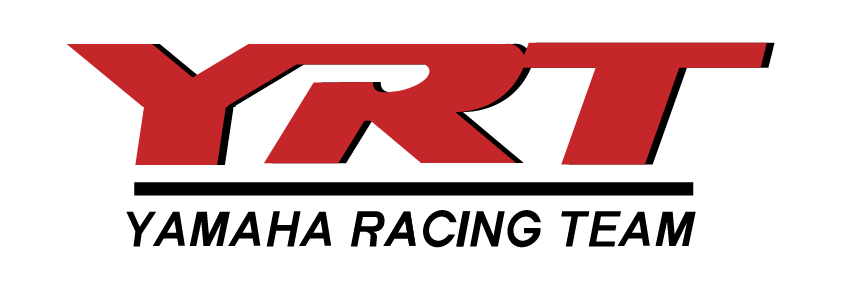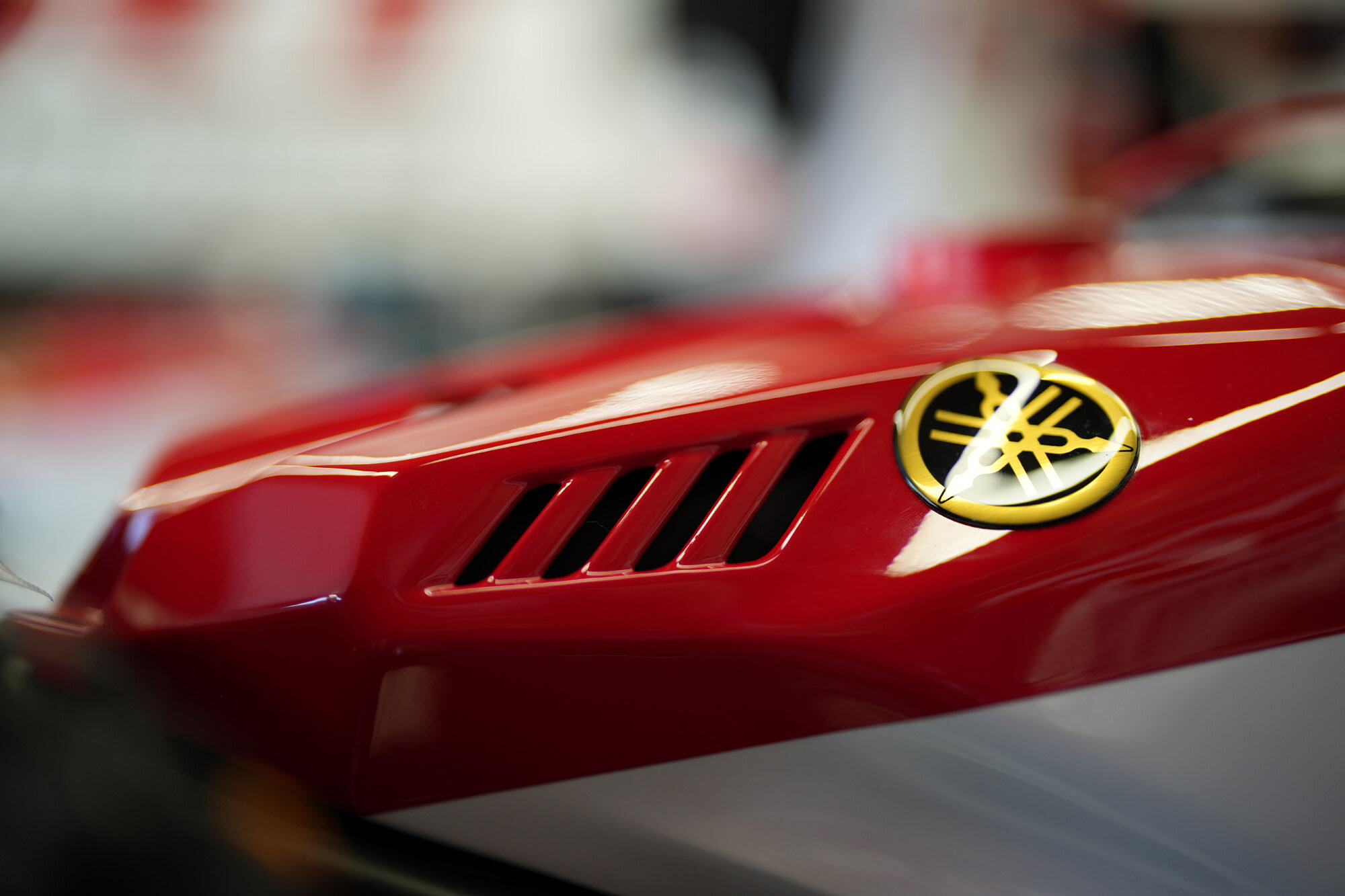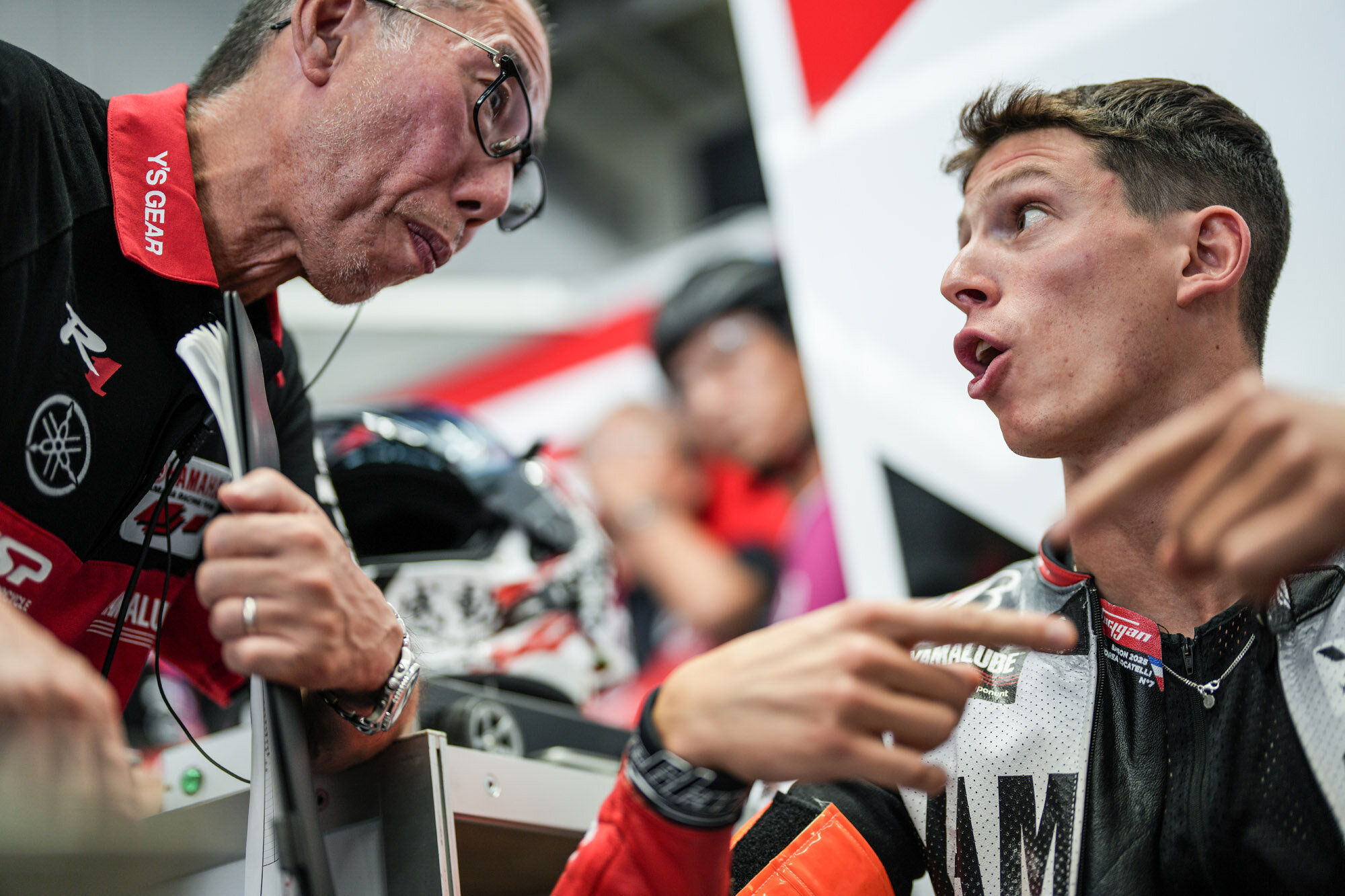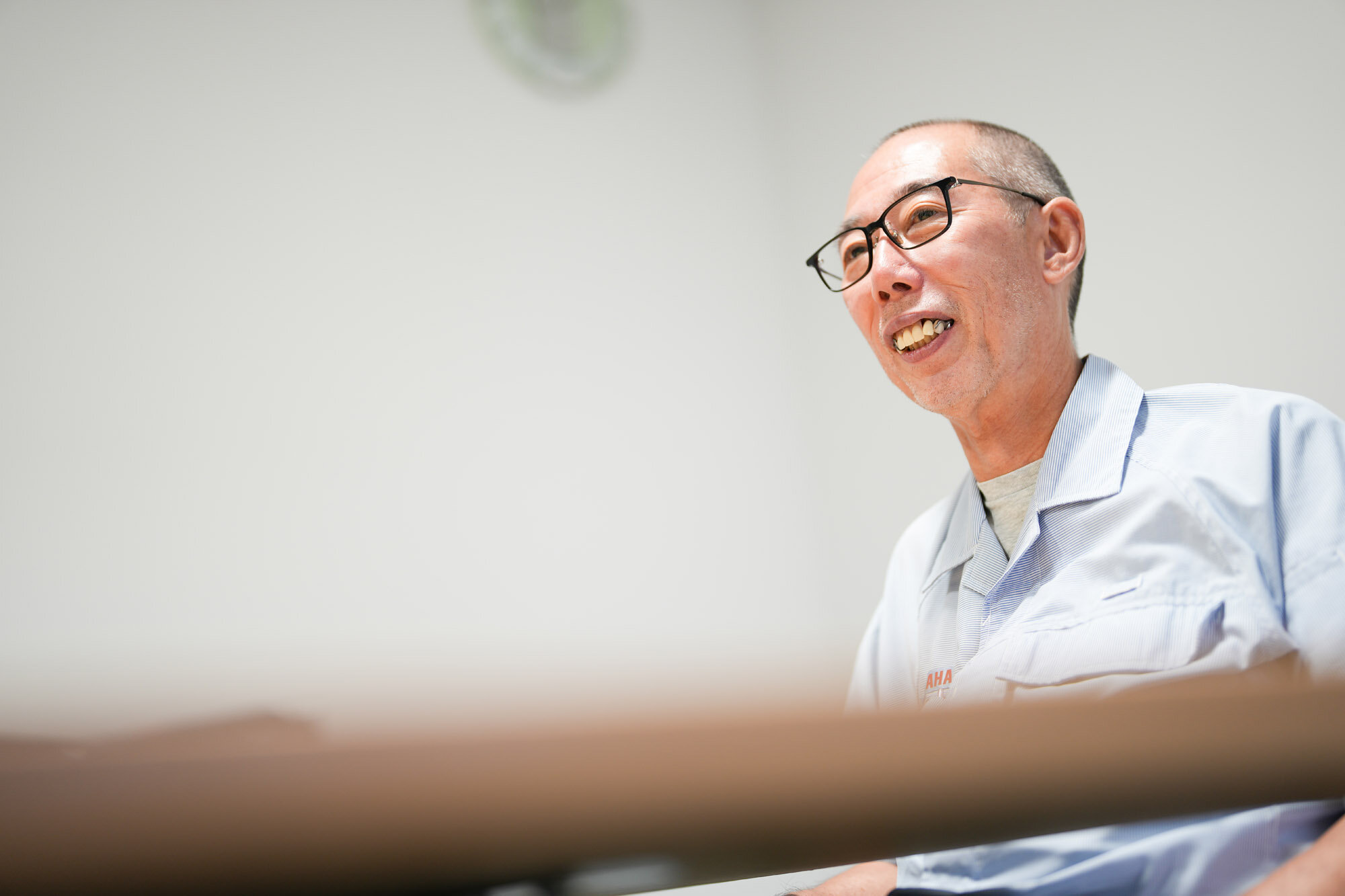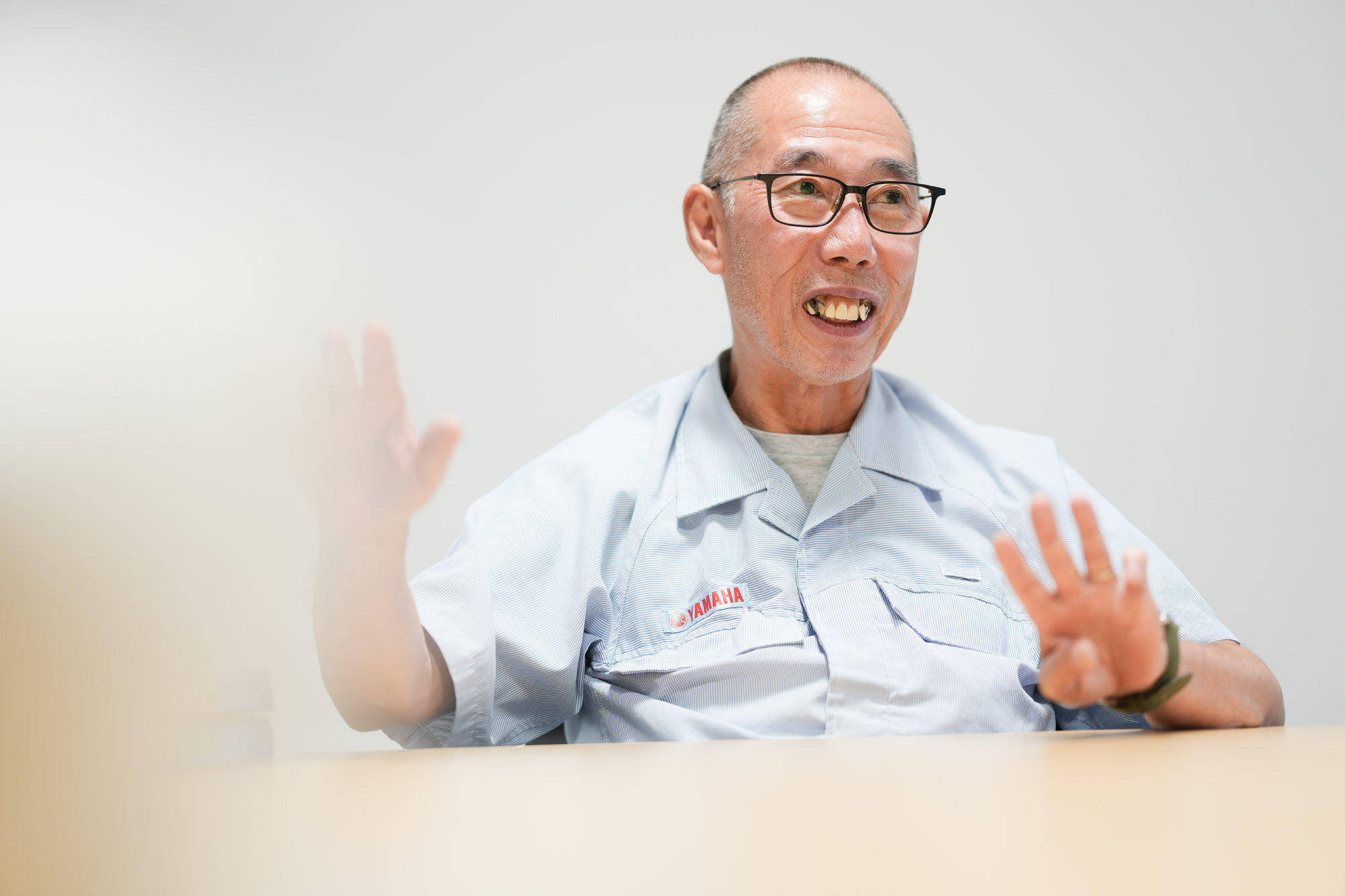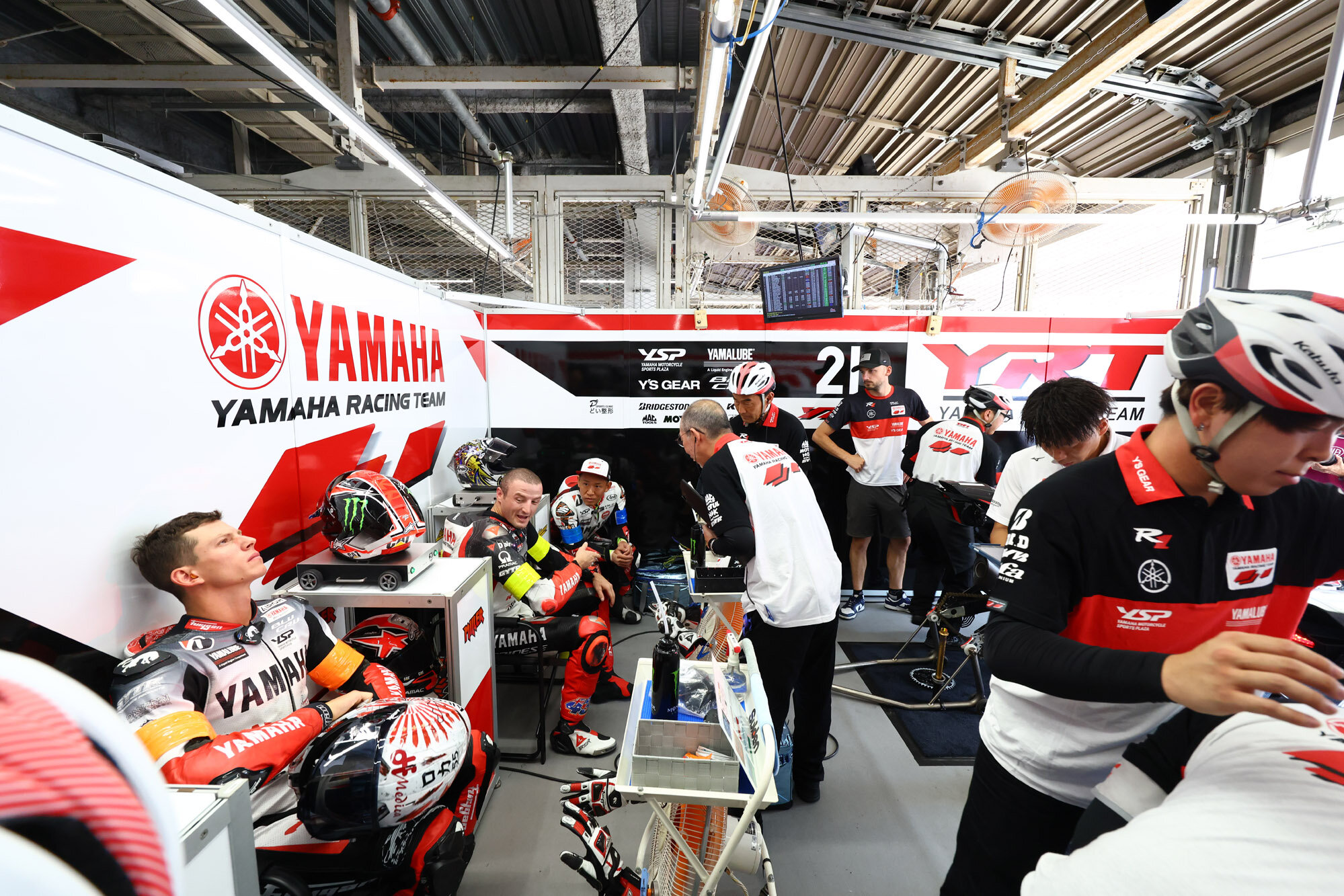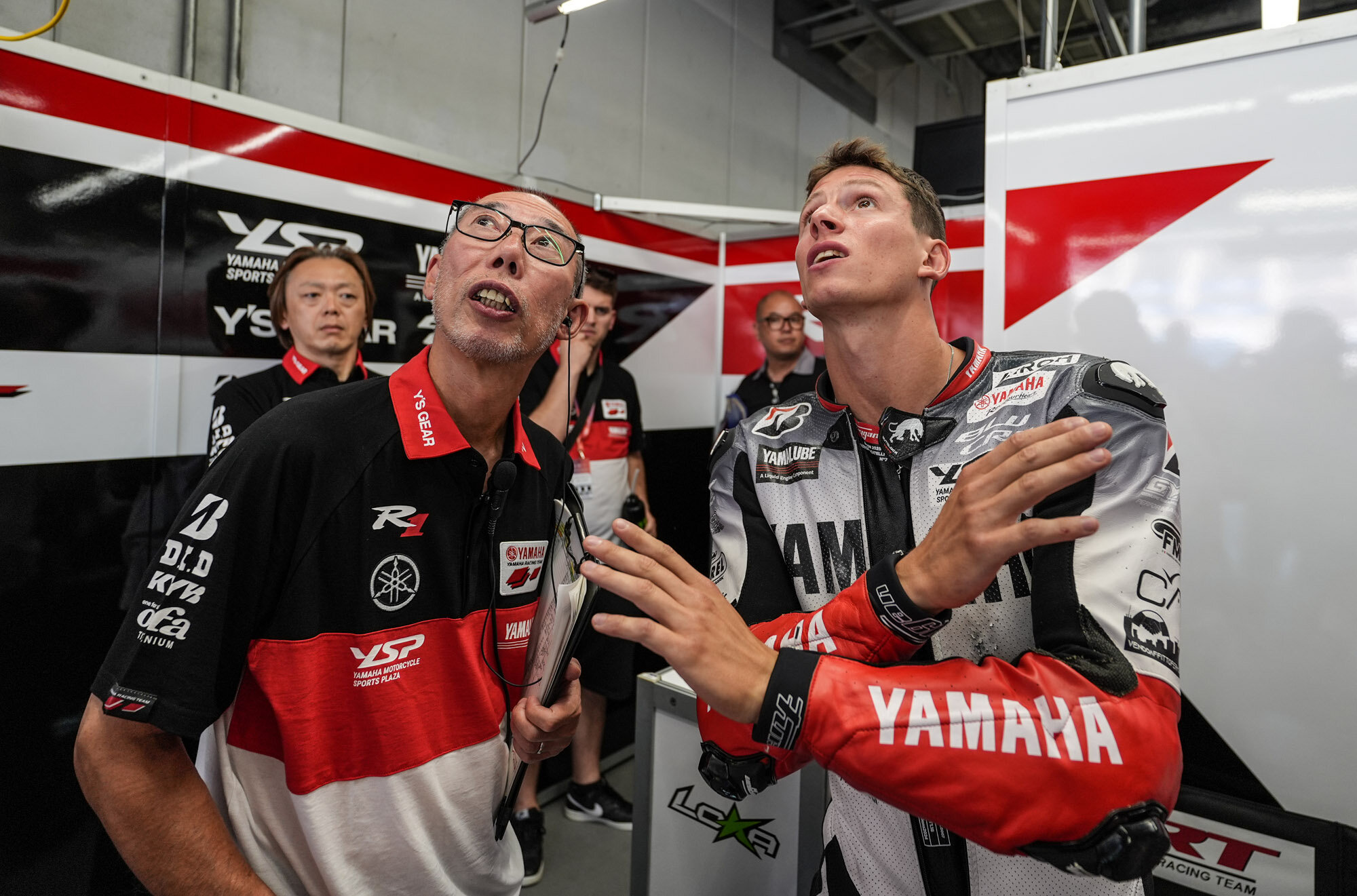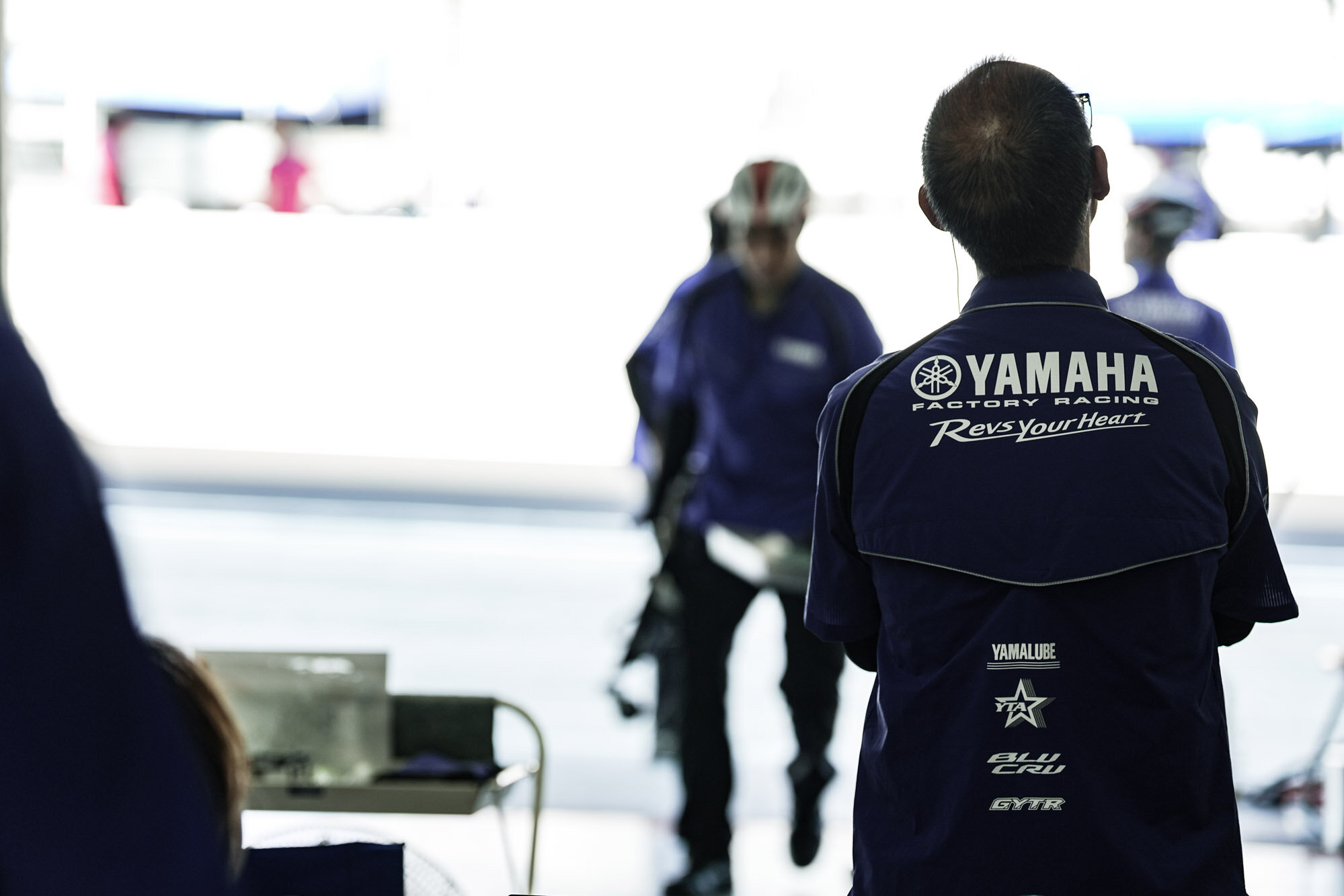The Essence of a Factory Team
After finishing his run, the rider gets off the bike, takes off his helmet and begins to talk rapidly. How the YZF-R1 feels, how the settings are, what the track conditions are like, how the bike feels in each corner, how the braking feels, how the acceleration feels. Chief Engineer Masahiko Iwata listens intently, standing right next to the rider so as not to miss a single word.
Based on the rider's comments, Iwata-san determines the direction for the bike settings. This is an extremely important role. Following his instructions, the mechanics make changes and adjust the machine. Then, the rider tests the now-adjusted machine, returns to the pits, and provides feedback once again. Iwata-san listens to the feedback and re-adjusts accordingly. This process is repeated over and over until the 8 Hours race starts on Sunday. Through this process, the team puts together a machine aligned with the rider's feelings to allow him to set the target time.
Iwata-san was not initially interested in motorcycle racing, but when a friend from university started racing, he went along to watch and got completely hooked. And, he felt like if he was going to do it, he should do it all the way. So, he quit university where he was studying mechanical engineering, and started hanging around at motorcycle shops. He asked a shop owner if he could work there, and when he got a casual reply of, "Sure," that was how it began. This was the late 80s to early 90s, when motorcycle racing was undergoing a major boom in Japan.
While he was doing this, "I heard that Yamaha was looking for a road racing mechanic, so I went for an interview and got hired." Iwata-san eventually became a full-time Yamaha employee, but at the time he was a contract mechanic, and was paid a daily wage. For Iwata-san, who had started out as a private mechanic in a local garage, it was a dream to join a factory team. The difference in the level, and the number of new challenges coming his way continuously surprised him.
"What was different? Everything. But mostly, it was the determination to win that was different. The budget was different, the number of staff was different, the quantity and quality of ideas were different, and the ability to put them into practice was different. Really, everything was different! (laughs).
"Above all though, the level of experience was different. The Yamaha factory has a long history and because of that, has already gone through so much of trial and error, and all of it was carefully recorded and systematically logged. When I became a Yamaha mechanic, of course I was a novice (laughs), but what helped me so much was that everything had been handed down from the past. It made a big difference."
At first, he made mistakes and was scolded. However, after three or four years, he got used to the factory way of doing things. He learned how to hold and use the tools by watching senior mechanics at work. Tasks that he had trouble with initially, he gradually improved.
"All my seniors were scary, and this was back in the 80s, so they didn't teach me anything specific. In fact, they kept things hidden from me (laughs). It was an era of 'figure it out for yourself,' and if you keep at it, you'll eventually figure it out. Or rather, you have no choice but to figure it out (laughs). But my seniors were watching closely to see what I was doing and what I was thinking. They didn't praise me. It's a world where you're just expected to perform."
When he says "expected to perform," it is because for Yamaha, results are always demanded. Simply put, for factory teams, winning is the only thing that matters. The extremely harsh environment, where anything less than first place is considered a defeat, is what forged Iwata-san as he came up through the ranks.
"Of course, you get pushed to your limits. I think there's a side to humans that lets us demonstrate our abilities when we're pushed to our limits. Both technically and mentally, when you get pushed to your limits, you overcome obstacles, and you become a different person than you were before. Racing with a factory team means you repeat this process often. As you build up experience within the company, you get stronger and stronger."
All Japan Road Race, WorldSBK and MotoGP. Though the stages changed, Iwata-san went from a mechanic to a chief engineer who decides the direction of machine setup. In 2013, he was in charge of Katsuyuki Nakasuga in All Japan Road Race, and in 2015, he worked at the Suzuka 8 Hours alongside Nakasuga-san as part of the Yamaha Factory Racing Team.
Iwata-san's attitude of handling the expectation to perform, of being expected to win, was also true at the 8 Hours. Nakasuga-san had won the All Japan Road Racing JSB1000 title five times, but had never stood on the podium in the iconic 8 Hours. His teammates were MotoGP riders Pol Espargaró and Bradley Smith. Although they were active in MotoGP, it was their first time riding in the 8 Hours.
Iwata-san treats all riders equally and does exactly what he is supposed to do as chief engineer. This applies not only to him, but to all riders and staff members in the factory team. It may seem like a simple concept, to "do your best," but in reality, making that happen requires a great deal of precision. To illustrate this, the team won the 8 Hours in 2015 for the first time in 19 years (since 1996) and won in consecutive years after that.
2025 marks the first time in six years that Yamaha will contest the 8 Hours as a factory team. "To be honest, it's tough," Iwata-san admits candidly. The race is a long-distance event, and in an endurance race where three riders share a single machine, there are many more tasks to handle and considerations to be made compared to a sprint race.
"It's tough, and it's really a challenge, but we're a factory team, so we approach every race with the attitude that winning is expected. To be honest, though, I think every manufacturer feels that way. Every manufacturer approaches the race with the intention of winning it. That means there will inevitably be a winner and losers. But that's how skills and technology continue to advance."
Winning provides the chance to reflect on how that winning was done, and through that, a formula for winning takes shape. Losing, then, becomes a springboard to gain new insights. Win or lose, a wealth of experience is gained, passed down, and used to move forward. This continuous process is the essence of a factory team.
Next April, Iwata-san will reach retirement age. However, his experience and expertise gained over many years as a mechanic and chief engineer at Yamaha will continue to live on within the company. "It's not that big of a deal," Iwata-san says with a laugh. In the history of the Yamaha factory, his tenure may represent a single page. However, the dictionary compiled from the pages written by Iwata-san's seniors and yet to be written by his juniors is incredibly thick and comprehensive.
Masahiko Iwata
Joined the Yamaha Factory as a contract mechanic in 1987. Since then, has played a key role in the team as a mechanic, chief engineer, continuing to support Yamaha's road racing efforts.

